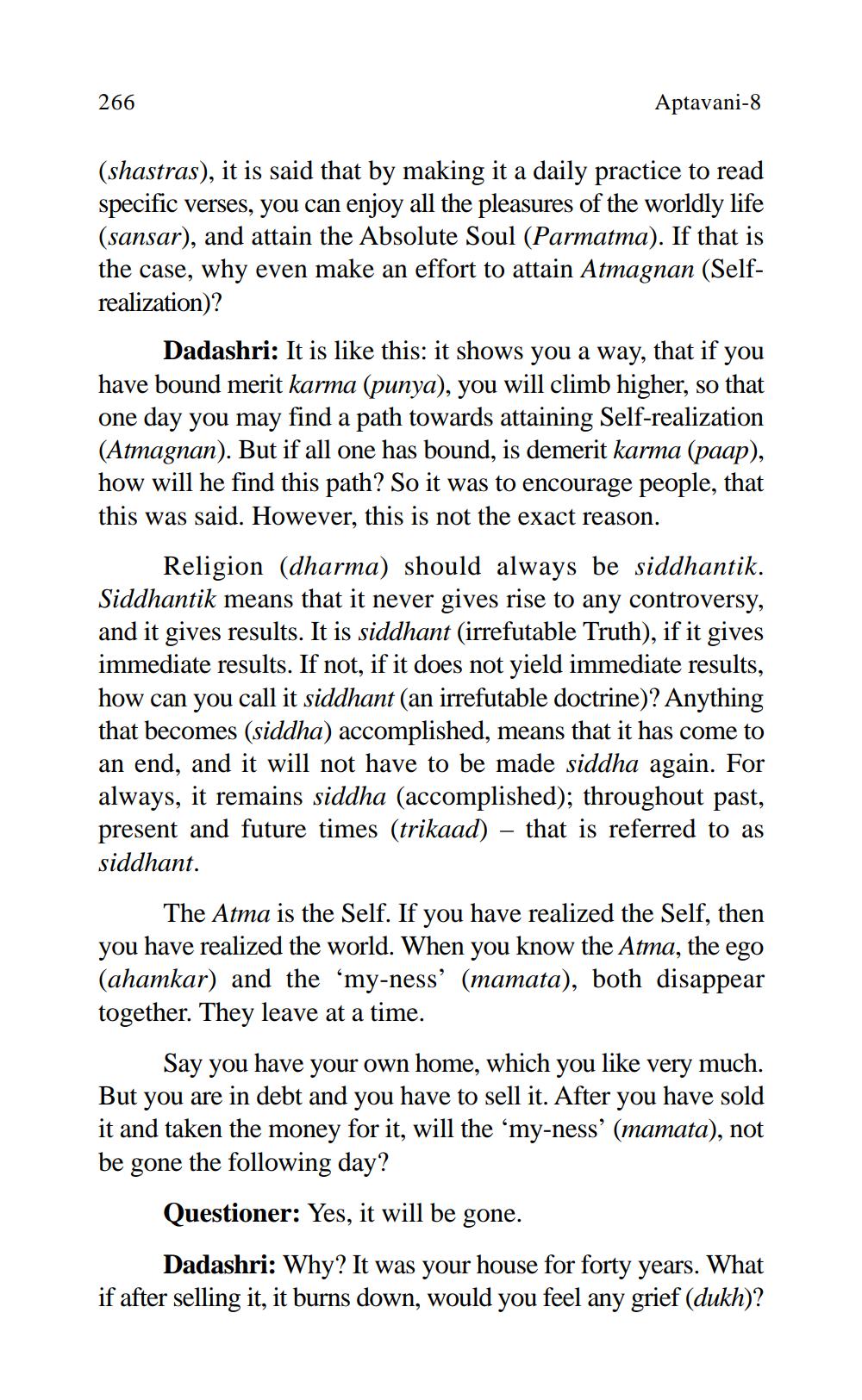________________
266
Aptavani-8
(shastras), it is said that by making it a daily practice to read specific verses, you can enjoy all the pleasures of the worldly life (sansar), and attain the Absolute Soul (Parmatma). If that is the case, why even make an effort to attain Atmagnan (Selfrealization)?
Dadashri: It is like this: it shows you a way, that if you have bound merit karma (punya), you will climb higher, so that one day you may find a path towards attaining Self-realization (Atmagnan). But if all one has bound, is demerit karma (paap), how will he find this path? So it was to encourage people, that this was said. However, this is not the exact reason.
Religion (dharma) should always be siddhantik. Siddhantik means that it never gives rise to any controversy, and it gives results. It is siddhant (irrefutable Truth), if it gives immediate results. If not, if it does not yield immediate results, how can you call it siddhant (an irrefutable doctrine)? Anything that becomes (siddha) accomplished, means that it has come to an end, and it will not have to be made siddha again. For always, it remains siddha (accomplished); throughout past, present and future times (trikaad) – that is referred to as siddhant.
The Atma is the Self. If you have realized the Self, then you have realized the world. When you know the Atma, the ego (ahamkar) and the “my-ness' (mamata), both disappear together. They leave at a time.
Say you have your own home, which you like very much. But you are in debt and you have to sell it. After you have sold it and taken the money for it, will the ‘my-ness' (mamata), not be gone the following day?
Questioner: Yes, it will be gone.
Dadashri: Why? It was your house for forty years. What if after selling it, it burns down, would you feel any grief (dukh)?




